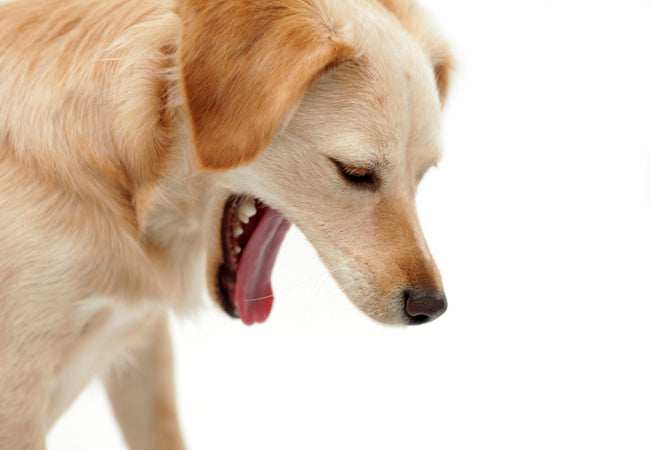Vet’s 2025 Guide to Canine Gastric Helicobacter spp. Infection 🐶✨🩺

In this article
Vet’s 2025 Guide to Canine Gastric Helicobacter spp. Infection 🐶✨🩺
By Dr. Duncan Houston BVSc
💡 What Are Gastric Helicobacter spp.?
Helicobacter species are spiral-shaped, urease-producing, microaerophilic bacteria that colonize the canine stomach lining. Frequently found in healthy dogs (up to 100%) and those with gastrointestinal upset, although their exact role in disease remains unclear.
🚩 Why It Matters in 2025
- 🐾 With advanced endoscopy and histopathology, vets can now accurately identify Helicobacter spp. and assess inflammation for tailored treatment.
- 💡 Targeted triple therapy (antibiotics + acid suppression) offers improved symptom relief—clinically important even if eradication rates vary.
- 🔁 Recurrence or reinfection is common post-treatment; understanding risk factors is essential for long‑term management.
- 🤝 Informed home monitoring with the Ask A Vet app empowers owners to track symptoms and expedite veterinary re‑evaluation.
👀 Who Gets Affected?
- All dogs – studies show 67–100% prevalence, regardless of symptoms.
- Symptomatic dogs – those with chronic vomiting, gastritis-like signs, or non‑ulcer dyspepsia may benefit most from evaluation.
- Risk factors – include overcrowding, poor hygiene, stress, underlying GI issues (e.g. IBD), and potentially source water exposure.
👀 Common Clinical Signs
- 🤢 Chronic or intermittent vomiting
- 🍽️ Reduced appetite or anorexia
- 😔 Weight loss, malaise, intermittent diarrhea
- 🔬 Typically no overt ulcers in most cases—ulceration is rare in dogs.
- 🩹 Gastrointestinal bleeding signs (e.g., melena or vomiting blood) are uncommon but possible.
🧪 How Is It Diagnosed?
- Endoscopy with gastric biopsy: Gold standard. Visualizes mucosal changes and allows brush cytology or rapid urease testing.
- Brush cytology & rapid urease: Quick in-office results; highly accurate.
- Histopathology/culture/PCR: Identifies species and degree of inflammation; important when treatment fails.
- Non-invasive tests: Serology, urea breath test, stool antigen possible but not routine.
- Rule out other causes: Parasitism, IBD, dietary intolerance, ulcers—using bloodwork, fecals, imaging.
🛠 Treatment Recommendations
1. Triple Therapy (2 Weeks) 💊
- 🐜 Two antibiotics (e.g., amoxicillin + metronidazole or tetracycline) + acid suppressor (omeprazole or famotidine).
- High-dose proton-pump inhibitors are preferred.
- Dosage and duration are tailored to weight and severity.
2. Diet & Environment 🥣
- Switch to easily digestible, hypoallergenic diets.
- Practice environmental hygiene—avoid overcrowding and untreated surface water.
3. Supportive Care 🧪
- Use GI protectants like sucralfate, and antiemetics if needed.
- Ongoing treatment for underlying issues like IBD or stress.
📅 Monitoring & Follow-Up
- Re-check via endoscopy or urease test several weeks post-treatment to confirm eradication.
- Remaining symptoms or positive tests → consider retreatment or further work-up.
- Educate owners on recurrence signs and prevention strategies.
📈 Prognosis
- ✨ Symptomatic improvement seen in many treated cases, though bacteria may persist or recur.
- Recurrence/reinfection rates are high; regular monitoring is advised.
- Overall prognosis is favorable—most cases stabilize with proper therapy and environment.
🏡 Ask A Vet App Home‑Monitoring Tools 📲🐶
- 📊 Track vomiting frequency, appetite, stool quality, weight.
- 📅 Timers for antibiotic and acid-blocker schedules.
- 📷 Upload vomit or stool images to share with your vet instantly.
- 🔔 Symptom alerts prompt early vet follow-up if needed.
- 📘 Built-in guides: "Recognizing gastritis flares", "Administer triple therapy", "Hygiene & water safety tips".
🔑 Key Takeaways 🧠✅
- Helicobacter spp. are common in dogs but only sometimes cause clinical gastritis.
- Definitive diagnosis via endoscopy with biopsy and rapid urease or histopathology.
- Two-week triple therapy + acid suppression often relieves symptoms.
- Recurrence is likely—environmental hygiene & monitoring are essential.
- Ask A Vet app enhances owner compliance, early detection, and vet collaboration.
🩺 Final Thoughts ❤️
In 2025, managing gastric Helicobacter in dogs requires a thoughtful balance: careful diagnosis, appropriate antimicrobial + acid suppression therapy, dietary support, hygiene education, and proactive monitoring. Treatment may alleviate symptoms—but recurrence is common without ongoing vigilance. By leveraging tools like the Ask A Vet app, owners can log symptoms, track treatments, and communicate efficiently with their vet—leading to timely interventions and better outcomes 🐾✨.
Visit AskAVet.com and download the Ask A Vet app to set medication reminders, log symptoms, upload images, receive alerts, and maintain close collaboration with your veterinarian throughout your dog’s treatment and recovery. 📲🐶






